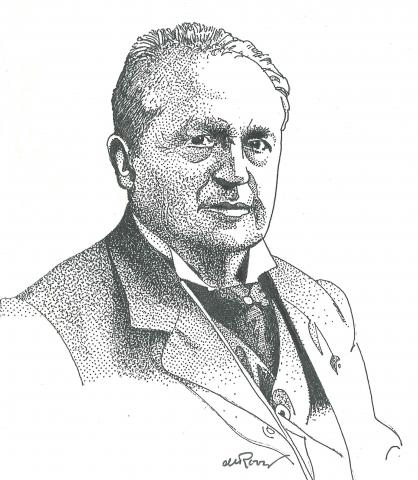A revised and updated version of
Abraham Kuyper: An Annotated Bibliography 1857-2010 by Tjitze Kuipers (2011)
You can buy a printed edition of this book on the site of the publisher.
1894
Report of the opening address to the twelfth, extraordinary, meeting of the delegates of the Anti-Revolutionary Electoral Associations, which was held in Utrecht on March 30, 1894. Against the background of a foundering electoral law and with elections for the Second Chamber on the horizon, disunity arose within the Anti-Revolutionary Party. This ultimately led to division. The question of the expansion of the franchise (cf. 1894.05) was causing increasing disagreement between Anti-Revolutionary members of Parliament and the Central Committee of the Anti-Revolutionary Party.
After contending that the Anti-Revolutionary Party is not deviating from the path set out by Groen van Prinsterer, Kuyper squarely addresses the conflict. He states that Groen van Prinsterer had repeatedly called an opinion piece that Kuyper had written about the expansion of the franchise twenty-five years earlier (see 1869.28) “an excellent article” and had recommended it to “our fellow members of Parliament” for reading and study. Kuyper goes on to claim that another of his articles, entitled “Het volk achter de kiezers” [The people behind the voters] and published in De Standaard, no. 362, June 5, 1873, had been partially responsible for prompting Groen van Prinsterer to propose him as a candidate for the Second Chamber. While Kuyper had in the past been willing to go along with those who thought differently about the expansion of the franchise, he contends that to do so now would constitute a dereliction of his duty. He now must stand firm and act with steadfast faith in the question of the expansion of the franchise—first, in order that the moral right of those social classes still excluded from the franchise might be acknowledged, and second, in order that the religious and historical power of Calvinism might again bind the conscience of the populace to God.

